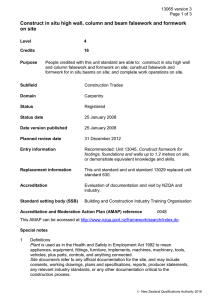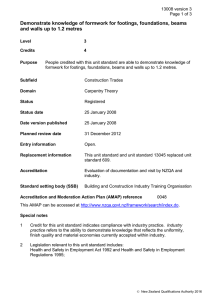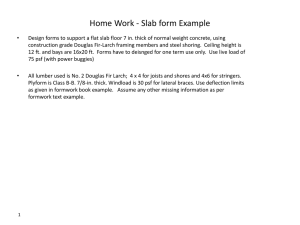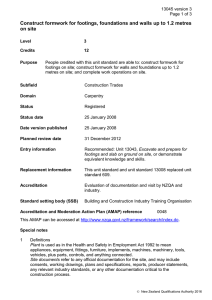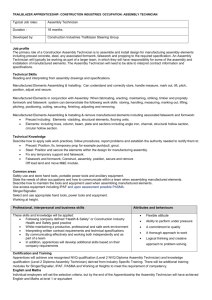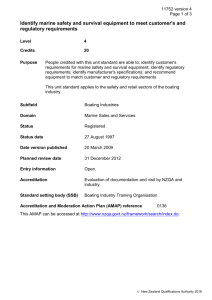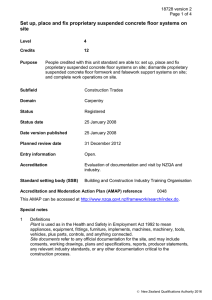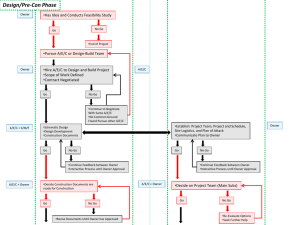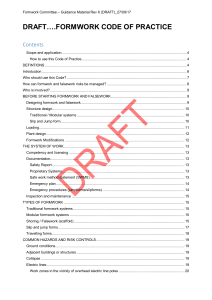Demonstrate knowledge of erecting in situ high wall, column, beam,... slab falsework and formwork
advertisement
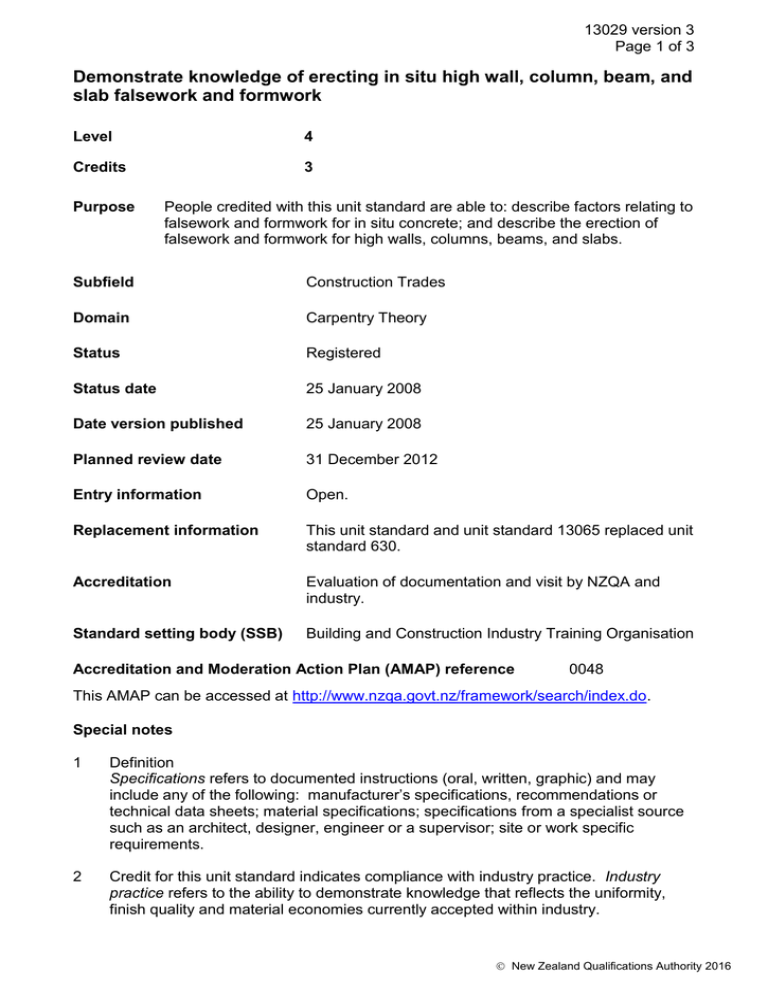
13029 version 3 Page 1 of 3 Demonstrate knowledge of erecting in situ high wall, column, beam, and slab falsework and formwork Level 4 Credits 3 Purpose People credited with this unit standard are able to: describe factors relating to falsework and formwork for in situ concrete; and describe the erection of falsework and formwork for high walls, columns, beams, and slabs. Subfield Construction Trades Domain Carpentry Theory Status Registered Status date 25 January 2008 Date version published 25 January 2008 Planned review date 31 December 2012 Entry information Open. Replacement information This unit standard and unit standard 13065 replaced unit standard 630. Accreditation Evaluation of documentation and visit by NZQA and industry. Standard setting body (SSB) Building and Construction Industry Training Organisation Accreditation and Moderation Action Plan (AMAP) reference 0048 This AMAP can be accessed at http://www.nzqa.govt.nz/framework/search/index.do. Special notes 1 Definition Specifications refers to documented instructions (oral, written, graphic) and may include any of the following: manufacturer’s specifications, recommendations or technical data sheets; material specifications; specifications from a specialist source such as an architect, designer, engineer or a supervisor; site or work specific requirements. 2 Credit for this unit standard indicates compliance with industry practice. Industry practice refers to the ability to demonstrate knowledge that reflects the uniformity, finish quality and material economies currently accepted within industry. New Zealand Qualifications Authority 2016 13029 version 3 Page 2 of 3 3 Legislation relevant to this unit standard includes: Health and Safety in Employment Act 1992 and Health and Safety in Employment Regulations 1995; Building Act 2004; Resource Management Act 1991; New Zealand Building Code; NZS 3109:1997 Concrete construction, and NZS 3124:1987 Specification for concrete construction for minor works, available from Standards NZ (http://www.standards.co.nz). Elements and performance criteria Element 1 Describe factors relating to falsework and formwork for in situ concrete. Range high wall, column, suspended beam, slab. Performance criteria 1.1 Falsework and formwork are described in terms of its purpose and uses. Range 1.2 falsework – timber propping, proprietary systems; formwork – fixed shuttering, slip forms, jump forms, permanent formwork. Falsework and formwork are described in terms of its erection requirements. Range line, level, plumb, specified tolerances, manufacturer’s specifications, use of release agents. 1.3 Falsework and formwork are described in terms of striking and maintenance. 1.4 New Zealand Standards are described as they relate to formwork. Range NZS 3109:1997, NZS 3124:1987. Element 2 Describe the erection of falsework and formwork for high walls, columns, beams, and slabs. Performance criteria 2.1 Methods used to erect falsework and formwork to line, level, plumb and specified tolerances are described in accordance with manufacturer’s specifications and instructions. 2.2 Methods used to strut, brace and tie falsework and formwork are explained in accordance with design requirements and manufacturer’s specifications. New Zealand Qualifications Authority 2016 13029 version 3 Page 3 of 3 2.3 Methods used to strike formwork and falsework without damage to any component are described in accordance with design requirements or manufacturer’s specifications. 2.4 Procedures for maintaining health and safety requirements when erecting false work and formwork are described. Range work methods, plant, equipment, identification of hazards and controls. Please note Providers must be accredited by NZQA, or an inter-institutional body with delegated authority for quality assurance, before they can report credits from assessment against unit standards or deliver courses of study leading to that assessment. Industry Training Organisations must be accredited by NZQA before they can register credits from assessment against unit standards. Accredited providers and Industry Training Organisations assessing against unit standards must engage with the moderation system that applies to those standards. Accreditation requirements and an outline of the moderation system that applies to this standard are outlined in the Accreditation and Moderation Action Plan (AMAP). The AMAP also includes useful information about special requirements for organisations wishing to develop education and training programmes, such as minimum qualifications for tutors and assessors, and special resource requirements. Comments on this unit standard Please contact the Building and Construction Industry Training Organisation national.office@bcito.org.nz if you wish to suggest changes to the content of this unit standard. New Zealand Qualifications Authority 2016
